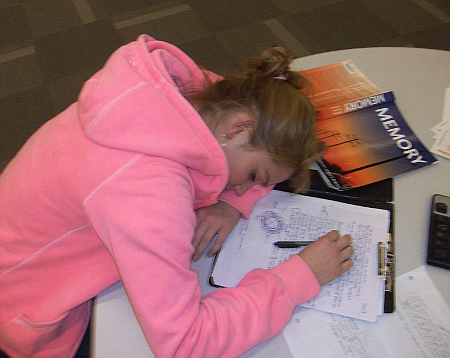Best Study Practices Reassessed
Everything you know about how to study properly is probably wrong. So says a recent article in the New York Times by science writer Benedict Carey. There is, he writes, no empirical evidence that grinding study schedules, quiet work spaces, and hard-set goals help students learn. “We walk around with all sorts of unexamined beliefs about what works that are mistaken,” Robert A. Bjork, a psychologist at the University of California, Los Angeles, tells Carey.
However, Carey explains, there are at least four effective approaches to learning that are backed by cognitive-science research. “But they directly contradict much of the common wisdom about good study habits, and they have not caught on.”
What are they?
- Students shouldn’t stick to one study location; instead they should alternate the rooms they study in.
- They should vary the type of related material they study in a single sitting.
- They should space out study sessions: an hour tonight, another on the weekend, one more a week from now, etc.
- Finally, they should give themselves a lot of practice tests and quizzes.
In the article, Carey explains why these techniques work. If students use them, he writes, they’ll have “a study plan based on evidence, not schoolyard folk wisdom, or empty theorizing.”
Filed under: K-12 Education News
Tags: Research, Research on Learning









